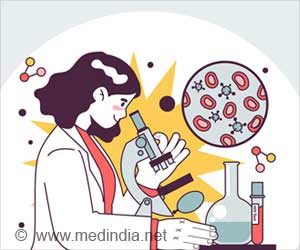A new study suggests that a potential new HIV drug may one day treat patients who are not responding to Anti-Retroviral Therapy.
A new study suggests that a potential new HIV drug may one day treat patients who are not responding to Anti-Retroviral Therapy.
Researchers, from Imperial College London, the National Cancer Institute, Bethesda, and Innsbruck Medical University, said when they used a molecule called D-1mT alongside Anti-Retroviral Therapy (ART) to treat monkeys they were able to reduce the levels of the simian form of HIV, known as SIV, in the blood.Currently, drug cocktails known as highly active antiretroviral therapy or HAART are commonly used to treat AIDS, but the treatment is not effective for around one in ten patients, partly because some develop drug resistance.
In the new study, the researchers treated 11 SIV-infected rhesus macaques with drug cocktails for at least four months, but eight of them were not responding completely and still had higher SIV levels.
All the macaques were then gave daily doses of D-1mT. After six days, only three had detectable virus levels and after 13 days the virus could only be found in two of them, at very low levels, the researchers said.
The researchers repeated the research in eight macaques that were not being treated with drug cocktails but this time they found no change in virus level over 13 days.
"Our early findings suggest that D-1mT could be used alongside antiretroviral therapy to stop the virus from replicating. The disease can only progress if the virus is replicating, so if we can slow replication down we can reduce the impact of the disease on the patient's life. We still need to figure out how D-1mT is working, then we can think about developing this as a potential treatment for HIV," Dr Adriano Boasso from Imperial College London said.
Advertisement
They had believed it might reactivate the immune system, because D-1mT is able to block an enzyme called IDO, which HIV and SIV use to hold the immune system back.
Advertisement
D-1mT is currently in Phase I clinical trials to test its safety and potential efficacy as a treatment for cancer, which should indicate whether the drug is suitable for treating human patients.
The researchers hope that if D-1mT proves safe in the initial trials for cancer and shows further promise for treating HIV, trials for using D-1mT as a treatment for HIV could begin as early as five years from now.
The research appears in The Journal of Immunology.
Source-ANI
ARU/L














